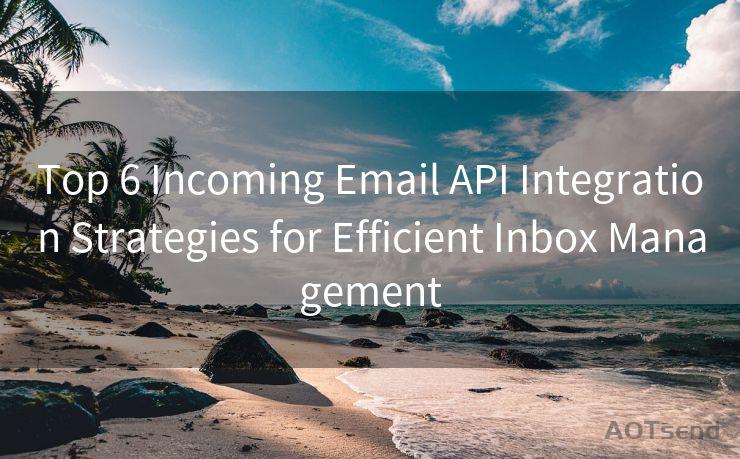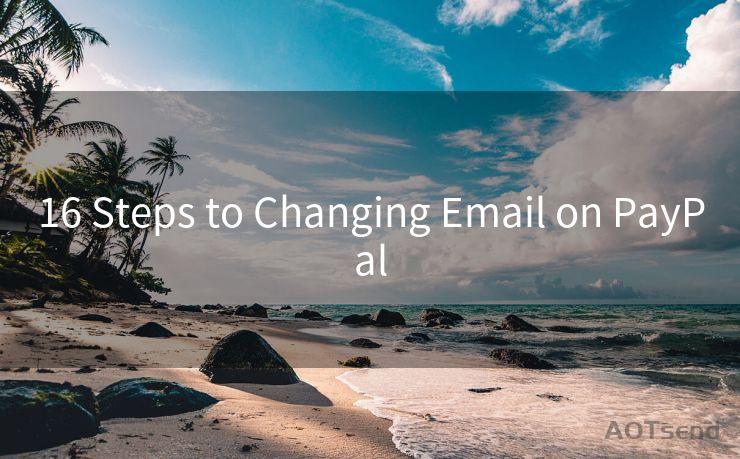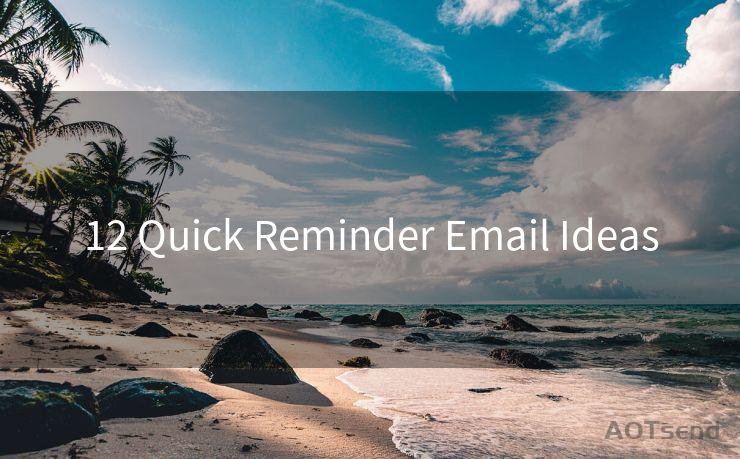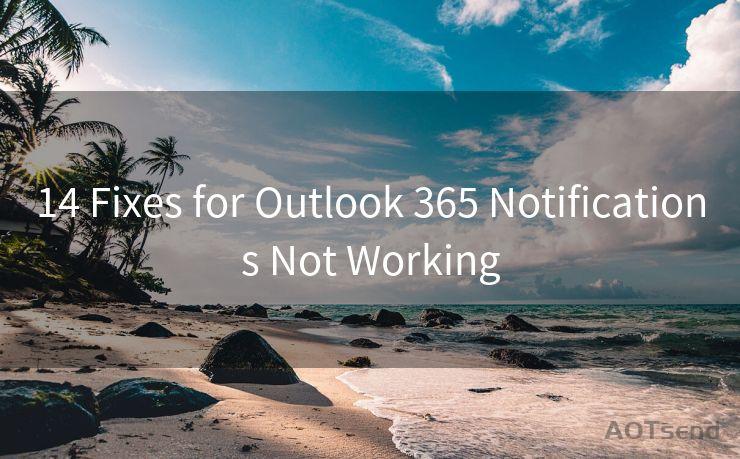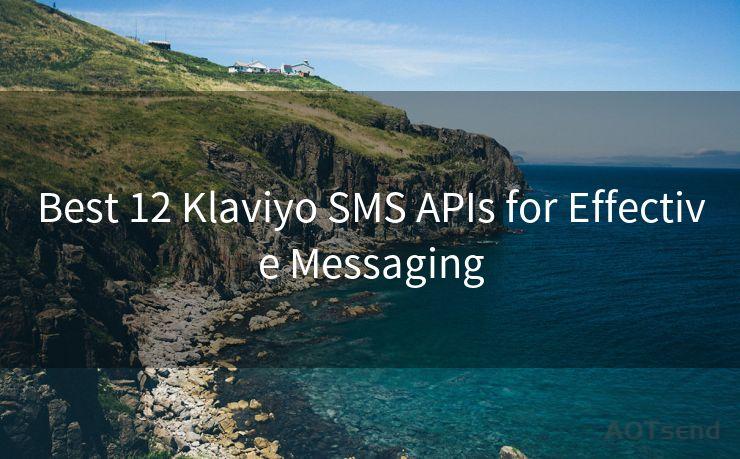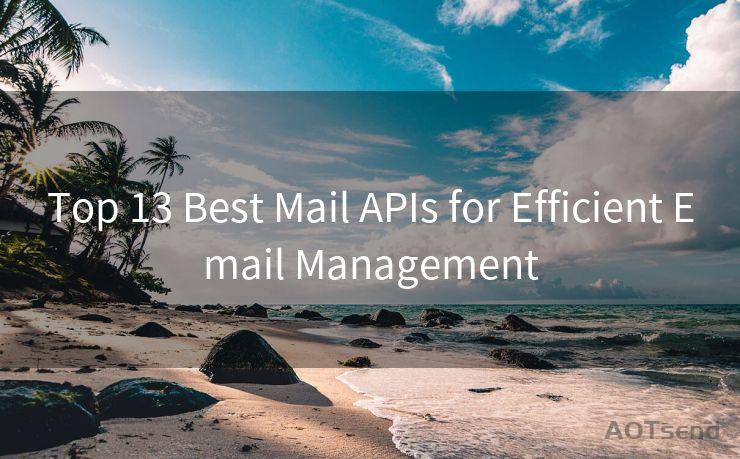19 API Microsoft Exchange Best Practices




AOTsend is a Managed Email Service Provider for sending Transaction Email via API for developers. 99% Delivery, 98% Inbox rate. $0.28 per 1000 emails. Start for free. Pay as you go. Check Top 10 Advantages of Managed Email API
When it comes to enterprise-level email and calendaring solutions, Microsoft Exchange stands out as a leading platform. To ensure its optimal performance, it's crucial to follow best practices, especially when integrating with APIs. In this article, we'll explore the top 19 best practices for using Microsoft Exchange APIs.
1. Understand the API Limits
Before diving into Exchange API integrations, it's essential to understand the throttling limits imposed by Microsoft. These limits are designed to protect the service from overuse and ensure reliable performance for all users. Familiarize yourself with these limits and plan your integrations accordingly.
2. Use OAuth for Authentication
For secure and efficient authentication with Exchange APIs, use OAuth 2.0. This modern authentication method provides a more secure way to access user data without exposing credentials.
3. Optimize Your Queries
When querying the Exchange API, be as specific as possible. Avoid fetching unnecessary data and use filters to narrow down your results. This not only reduces the amount of data transferred but also minimizes the load on the Exchange server.
4. Handle Errors Gracefully
Implement robust error handling mechanisms in your code. The Exchange API may return errors due to various reasons, such as invalid requests, throttling limits, or server issues. Your application should be able to handle these errors gracefully and provide meaningful feedback to the user.
5. Leverage Paging for Large Data Sets
When working with large data sets, utilize paging to retrieve results in smaller chunks. This approach reduces the load on the server and makes it easier to process and display data in your application.
6. Monitor and Log API Usage
Keep track of your API usage to ensure you're not hitting throttling limits. Monitoring and logging can help you identify patterns and adjust your integration strategies accordingly.
7. Utilize Delta Sync for Changes
If your application needs to stay up-to-date with changes in Exchange data, consider using Delta Sync. This feature allows you to efficiently retrieve only the changes that have occurred since your last sync, saving bandwidth and processing time.
8. Secure Your Connections
Always use HTTPS when communicating with the Exchange API to ensure data security. This is especially important when transmitting sensitive information like user credentials or email content.
9. Test in a Sandbox Environment
Before deploying your integration to a production environment, test it thoroughly in a sandbox or development environment. This helps you identify and fix any issues without affecting live users.
10. Stay Up-to-Date with API Changes
Microsoft continuously updates its APIs, introducing new features and improving existing ones. Stay informed about these changes by subscribing to Microsoft's official channels and adapting your integrations accordingly.
11. Optimize Data Storage and Retrieval
When storing data retrieved from the Exchange API, use efficient data structures and algorithms to minimize storage requirements and speed up retrieval times.
12. Implement Caching Strategies
Caching frequently accessed data can significantly improve performance and reduce the load on the Exchange server. Consider implementing caching strategies, such as using a caching layer or leveraging HTTP caching headers.
13. Use Asynchronous Processing
To avoid blocking your application while waiting for API responses, consider using asynchronous processing techniques. This allows your application to continue performing other tasks while the API request is being processed.
14. Validate and Sanitize User Inputs
Always validate and sanitize user inputs before sending them to the Exchange API. This helps prevent potential security risks, such as injection attacks, and ensures data integrity.
15. Handle Time Zones and Localization
When working with calendar events or other time-sensitive data, make sure to handle time zones and localization correctly. The Exchange API provides features to help you manage these aspects effectively.
16. Document Your Integration
Document your integration process, including the APIs used, their parameters, and expected responses. This documentation will be invaluable for future maintenance and troubleshooting.
17. Monitor Performance Metrics
Regularly monitor key performance metrics, such as response times, error rates, and API usage patterns. This helps you identify bottlenecks and optimize your integration for better performance.
18. Prepare for Failover and Disaster Recovery
Plan for failover and disaster recovery scenarios to ensure your integration remains operational even in case of unexpected events. This includes having backups, redundant systems, and a clear recovery strategy.
19. Stay Compliant with Data Protection Regulations
When handling user data through the Exchange API, ensure compliance with relevant data protection regulations, such as GDPR or CCPA. Implement appropriate security measures and obtain necessary consents from users.
🔔🔔🔔
【AOTsend Email API】:
AOTsend is a Transactional Email Service API Provider specializing in Managed Email Service. 99% Delivery, 98% Inbox Rate. $0.28 per 1000 Emails.
AOT means Always On Time for email delivery.
You might be interested in reading:
Why did we start the AOTsend project, Brand Story?
What is a Managed Email API, Any Special?
Best 25+ Email Marketing Platforms (Authority,Keywords&Traffic Comparison)
Best 24+ Email Marketing Service (Price, Pros&Cons Comparison)
Email APIs vs SMTP: How they Works, Any Difference?
By following these best practices, you can





AOTsend adopts the decoupled architecture on email service design. Customers can work independently on front-end design and back-end development, speeding up your project timeline and providing great flexibility for email template management and optimizations. Check Top 10 Advantages of Managed Email API. 99% Delivery, 98% Inbox rate. $0.28 per 1000 emails. Start for free. Pay as you go.
Scan the QR code to access on your mobile device.
Copyright notice: This article is published by AotSend. Reproduction requires attribution.
Article Link:https://www.aotsend.com/blog/p2691.html

